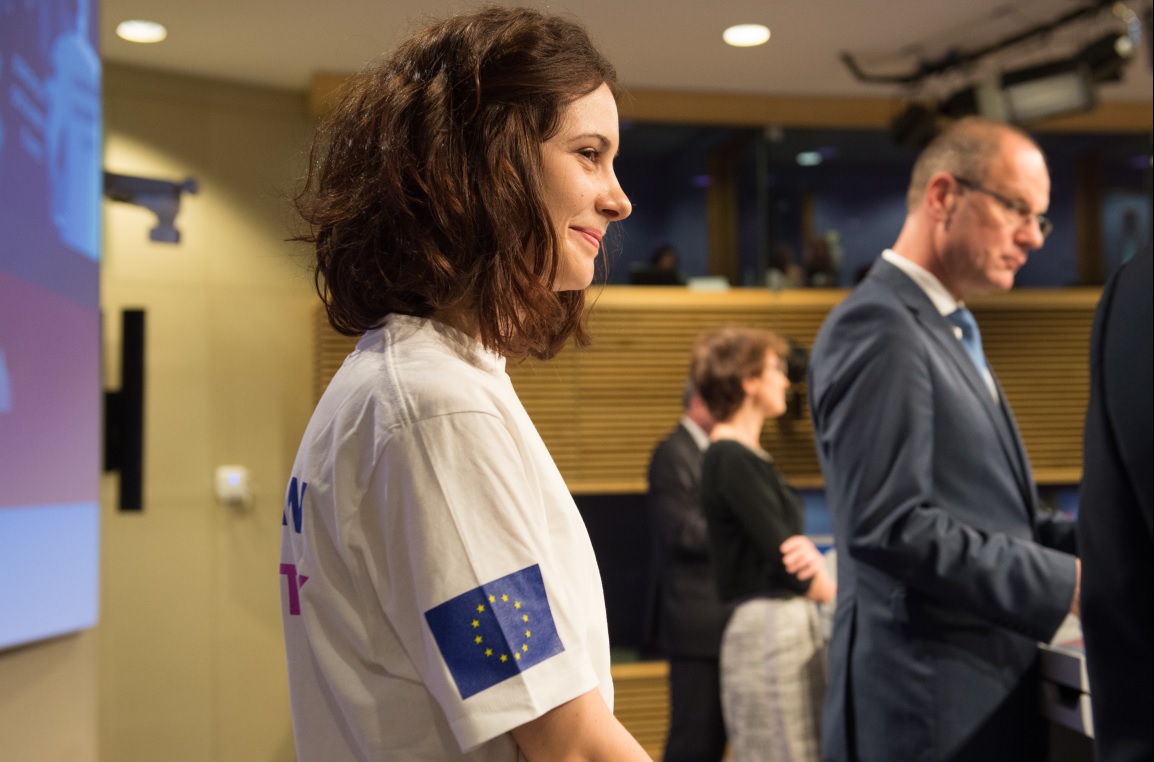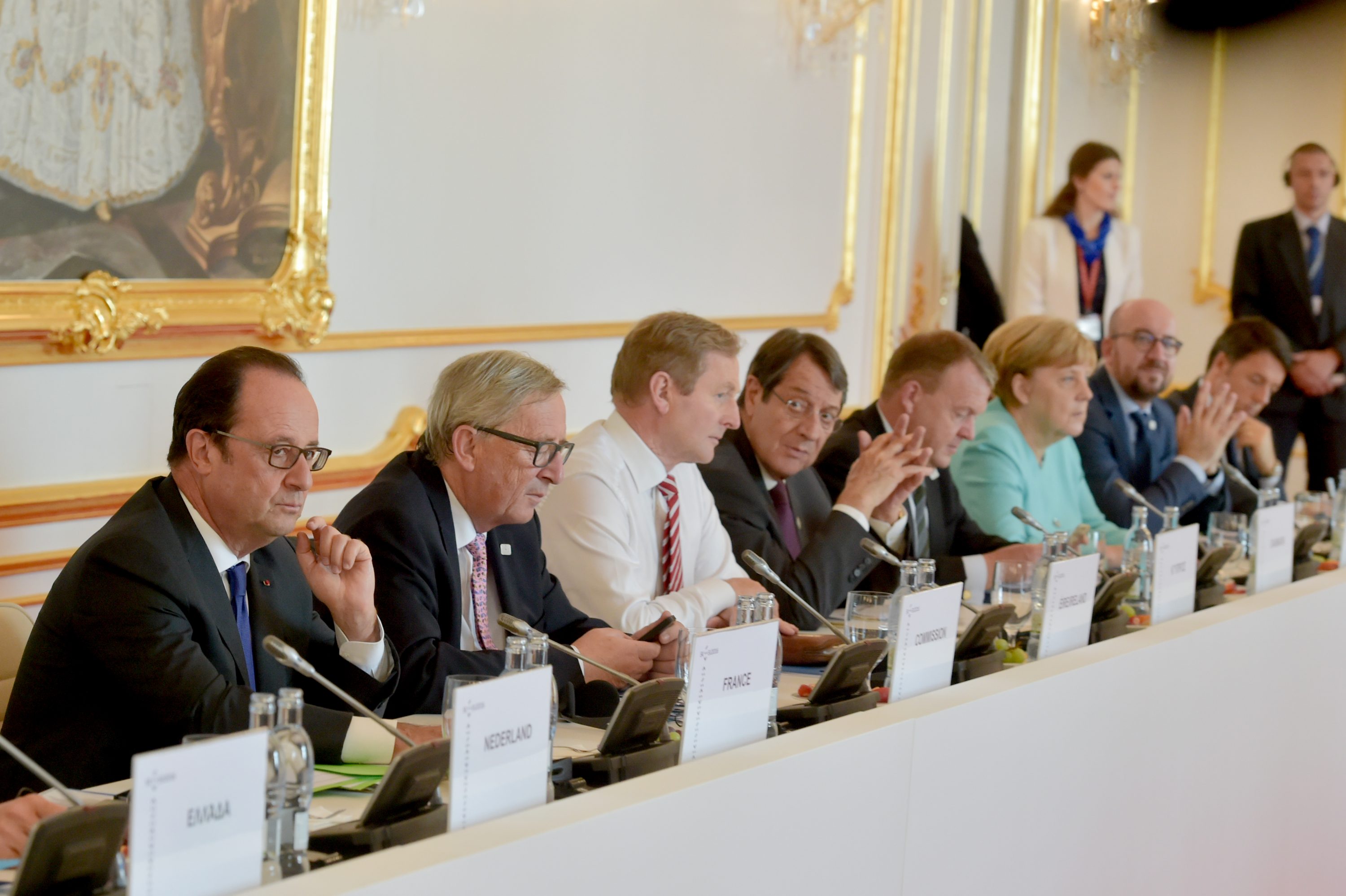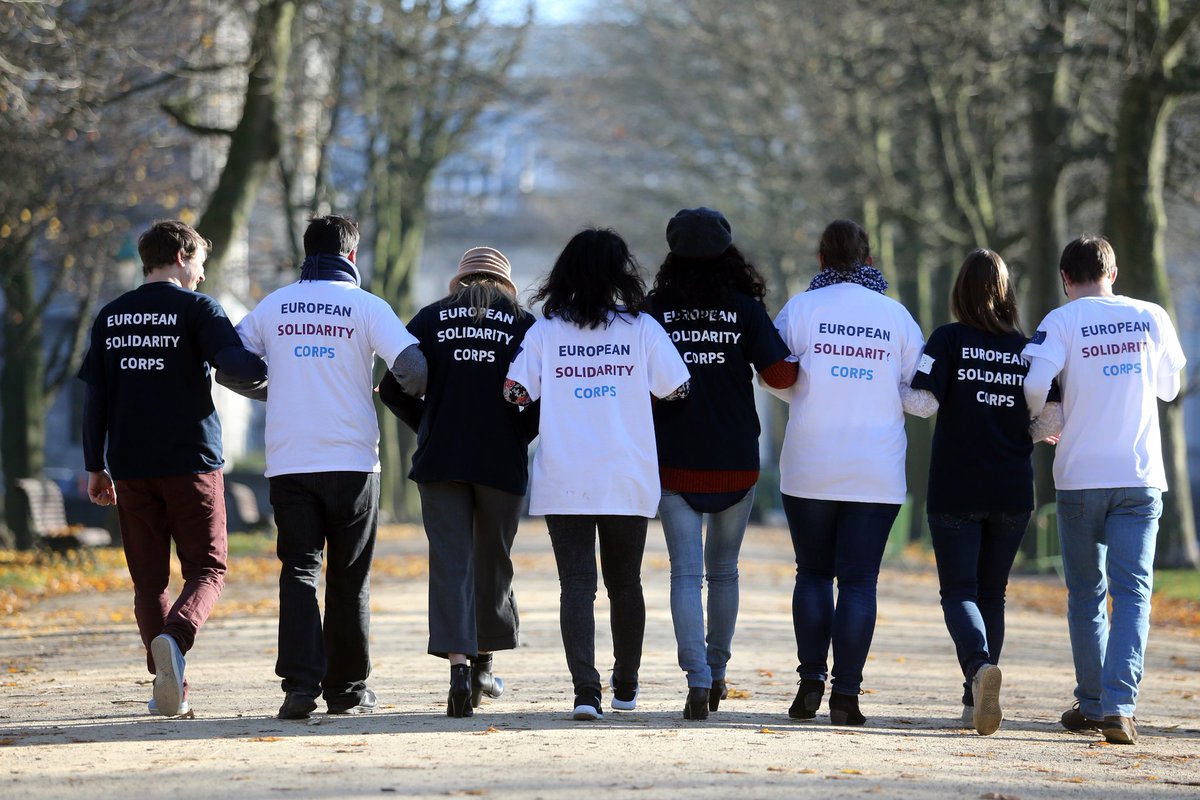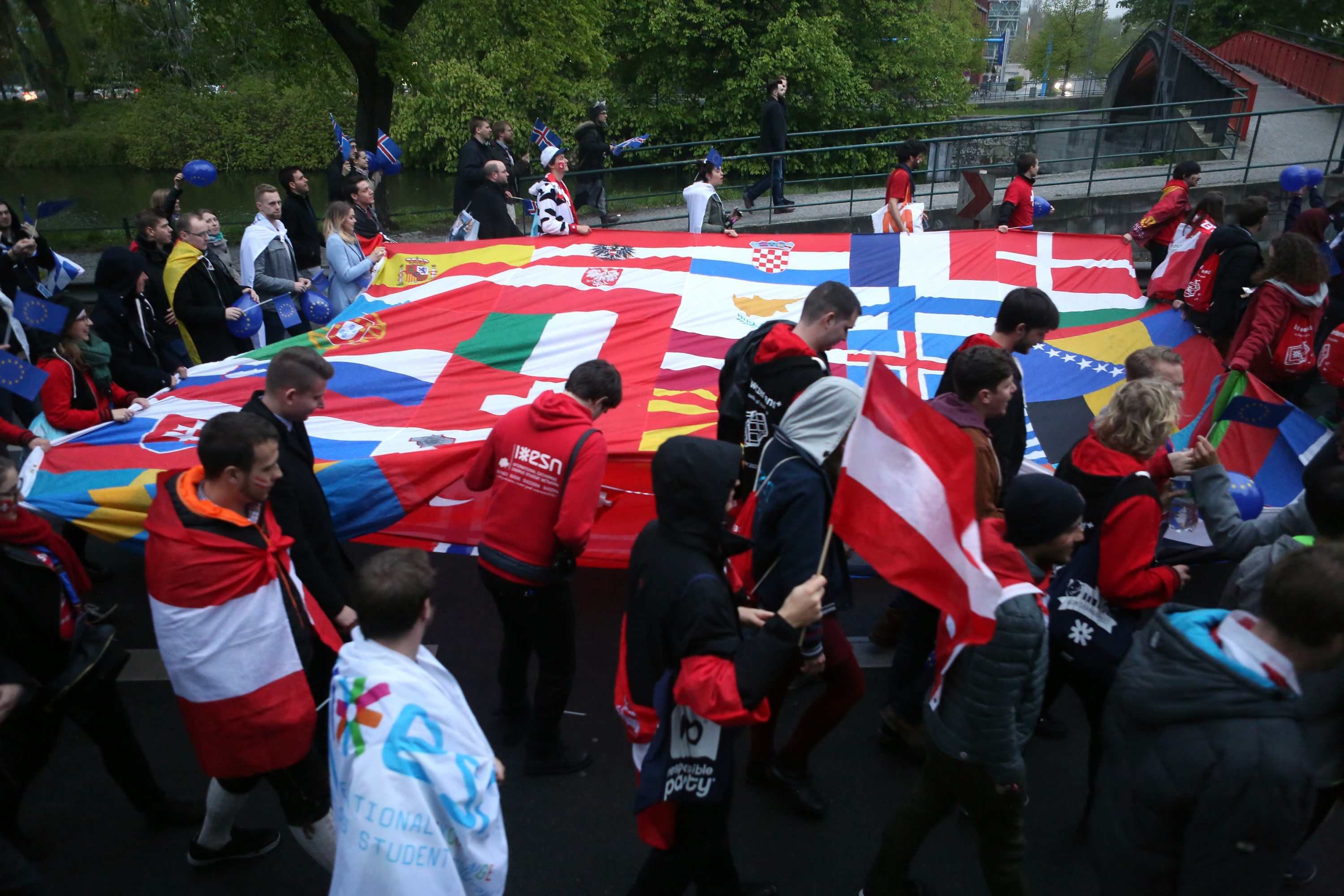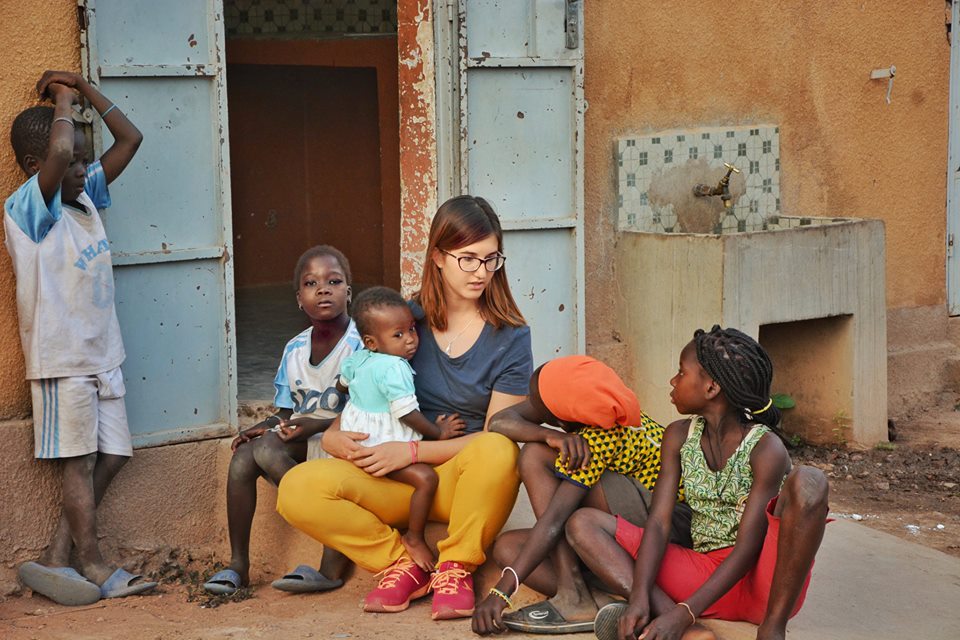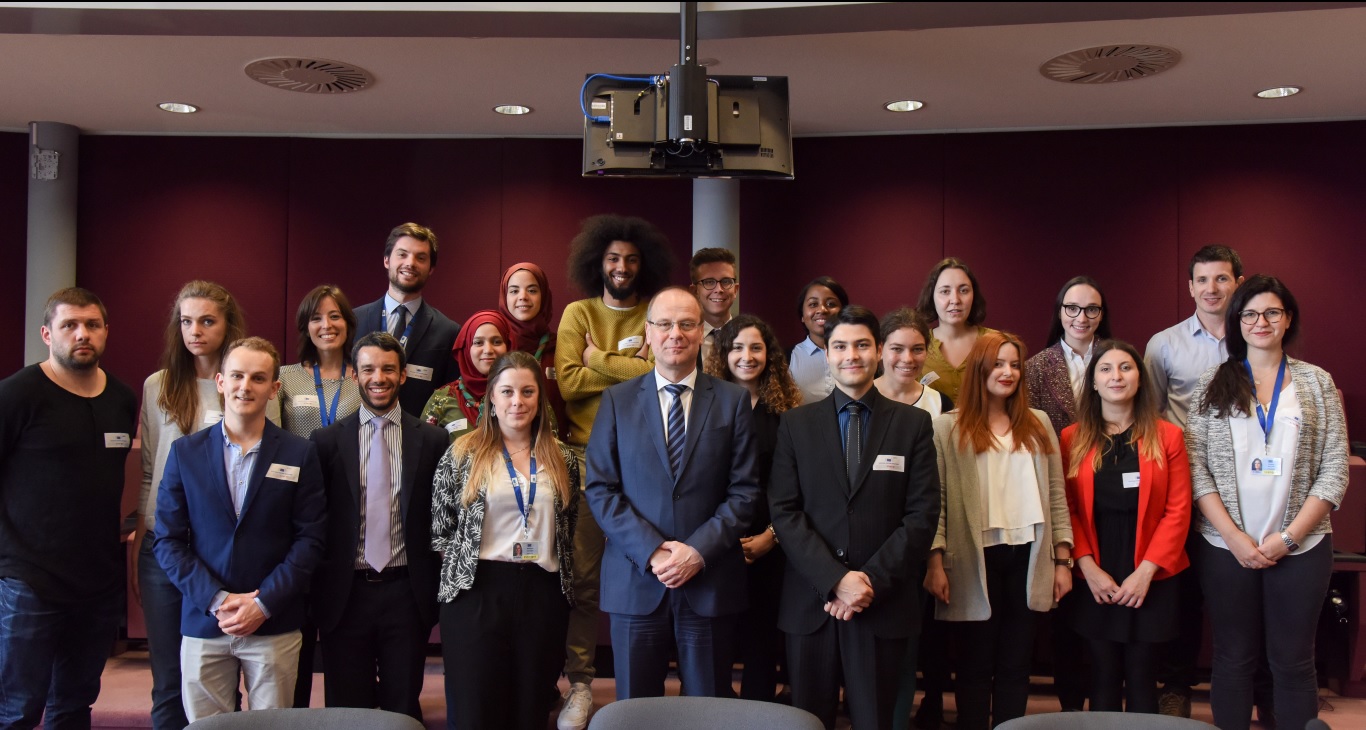Youth is as high on the European Union’s political agenda today as it has ever been. And rightly so. We are about to make big decisions on what kind of Europe we want to build for the future. Given that this future belongs to young people, they need to have a central role in the debate – and in taking the steps we need to take to get there. This means that we have to do more to enable them to become independent, resilient citizens who engage and take their place in society. Education, inside and outside the classroom, has a critical role to play in this.
In the photo: Informal meeting of the 27 Heads of State or Government in Bratislava, 16/09/2016 – Credit: © European Union , 2016 /Photo: Etienne Ansotte
In September 2016, when EU Heads of State and Government met in Bratislava to discuss the future of the Union, they undertook to “provide better opportunities for youth”. As a result, youth also featured prominently in the conclusions of their regular meeting in Brussels in December 2016. Then, in March this year, as the European Union celebrated turning 60, EU leaders pledged to work towards “a Union where young people receive the best education and training and can study and find jobs across the continent”.
The European Commission is driving this agenda forward. At the end of last year, we presented a major initiative on “Investing in Europe’s Youth” which covers different aspects of young people’s lives. Our main objective is to open up more and better opportunities for them to access education, training and employment, as well as to engage in solidarity activities at home and abroad.
Of course we already have a number of successful tools to do this. This year, we are celebrating the 30th anniversary of the most popular one: our Erasmus programme. Over the last three decades, the number of countries taking part in this EU success story has grown from the initial 11 to the current 33 – the 28 Member States plus Turkey, the Former Yugoslav Republic of Macedonia, Norway, Iceland and Liechtenstein. To date, nine million people – the population of a medium-sized Member State – have benefited from Erasmus and its successor programmes including the current one, Erasmus+.
What began as a student mobility programme has become much broader, offering more opportunities for study periods, traineeships, apprenticeships, youth exchanges, volunteering and staff exchanges in all fields of education, training, youth and sport – the plus in Erasmus+. Participating in Erasmus+ helps individuals develop specific, technical skills. But going abroad also helps them develop crucial transversal skills they need to succeed in the job market and in life, such as flexibility, creativity and problem-solving skills. Indeed, five years after graduation, the unemployment rate of young people who have studied or trained abroad is 23% lower than that of their peers who have not. And more than one in three of those who do a work placement through Erasmus are offered a position in the company they worked for.
In the photo: Investing in Europe’s Youth – Credit: European News Room
Most importantly, Erasmus+ plays a crucial part in enabling young people to develop a sense of what it feels like to be European. By giving young people the chance to make friends and build personal networks across borders, the programme helps to create a European identity. An identity that does not threaten, but that complements and enriches our national, regional, local identities.
As successful as Erasmus+ is, I want to make sure that we improve it further. Most importantly, I want us to broaden it, so that more young people from all backgrounds can benefit from it.
I am also delivering on the commitments made in the Investing in Europe’s Youth initiative with our new strategies on school and higher education. I want to support Member States and education providers in taking the steps needed to open up more opportunities for all young people in Europe. Education plays a key role in giving them the best possible start in life, but action is needed to improve the quality and performance of education systems in Europe so they can keep up with societal change and serve children and young people from all backgrounds.
We want to step up our cooperation with Member States to boost basic skills, for example, including basic digital skills. That is why we are developing a new tool to help schools and other education providers assess how well they are doing in using new technologies in teaching and learning. Making sure that all young people are digitally competent is not only a question of preparing them for an increasingly technology-driven workplace. It is a question of social inclusion. We also want to track what graduates do after they complete their education. The idea is to make more and better data on what skills they use available. This will help universities better tailor their courses – and prospective students choose subjects and institutions.
In the photo: The 2017 Annual General Meeting of the Erasmus Student Network, in Berlin – Credit: © European Union , 2017 / Source: EC – Audiovisual Service / Photo: Adam Berry
The Commission is also working to offer young people more opportunities to engage with and support others. Last September, Commission President Jean-Claude Juncker put forward the idea of a European Solidarity Corps, a new EU initiative offering volunteering, traineeship and job opportunities to young people willing to make a meaningful contribution to society. Why? Because it is now more important than ever to strengthen the value of solidarity in Europe – and because we know that many more young people are interested in investing their time and energy to help others, than actually get the chance to do so.
Less than a year after we launched the European Solidarity Corps , more than 33,000 young people have registered, and the first participants have already started their placements, with many more preparing to begin theirs soon. This proves that there is an enormous interest among young people in Europe in supporting individuals and communities in need, while enhancing the skills and competences relevant for their careers but also their personal life.
The idea behind the European Solidarity Corps is to provide medium- to long-term help where it is most needed: to communities in towns and villages ravaged by an earthquake that need rebuilding after the immediate relief has been given. To refugees arriving in Europe. Or to areas working to protect themselves against natural disasters. Young people are willing to be part of the solution and to offer their skills and time. And this is where the European Solidarity Corps steps in: through an online portal, organisations active in the field can easily connect with interested young people from across the EU.
The European Solidarity Corps is currently supported by a number of existing EU programmes. But we want to go further: our ambition is to make this a strong, self-standing, sufficiently resourced initiative that will make good on its promise to bring at least 100,000 young people on board by 2020.
In the photo: Luisa Piemontese for European Solidarity Corps – Credit: Luisa Piemontese
This is why we recently tabled a proposal for a dedicated legal base and budget for the Corps, as well as for expanding its activities. This will allow us to offer even more opportunities to young people, including helping small groups put in place their own projects. Offering training and language courses and providing specific support to help disadvantaged young people to join is part of the package too. We also aim at building a strong solidarity community that will connect alumni and organisations, and will serve as a fertile ground for new ideas and projects.
Because young people have very good ideas. And these ideas need to be heard as we debate what kind of Europe we want to live in. The Commission’s White Paper on the future of Europe launched this debate. It is vital that young people are at its centre. Generally speaking, they are more positive about the EU than other age groups: they feel more European, have more trust in the EU and a more positive image of it; they are also more satisfied with how democracy works in the EU and want more decisions taken at EU level. But at the same time, young voters were the age group with the lowest participation in the last European Parliament elections. We need to intensify our efforts to communicate with them. And this cannot start a few months before the elections through a poster campaign. Young people should be a constant and integral partner in all EU discussions and consultations and get a real feeling that their voice matters.
By the summer of next year, the Commission will make proposals for the next EU Youth Strategy for the period after 2018. This is about what youth policy at EU level should look like in the future – about what we should do to enable young people to become active, confident citizens. Our work in the field of youth at EU level does not replace national and regional actions. But all Member States very much appreciate the possibility of carrying out joint analysis of common issues and of learning from each other’s experiences.
We need to find a good balance between stability and flexibility: stability because a cooperation strategy needs time to have an impact and be effective; and flexibility because the framework needs to adapt to the changing needs of young people. For instance, in 2009, when the priorities for the current EU Youth Strategy were agreed, no one could have anticipated the full effects of the crisis, problems with radicalisation nor the challenges related to the arrival of many refugees.
Yet, we can still set broad goals and base our work on a set of guiding principles. For example, in a recent consultation we asked young people in which areas they wanted the EU to act. The highest overall support went to “Lowering youth unemployment and inactivity” (83% of respondents identified this area as a “high priority”) and “Improving the social situation of young people at risk of poverty or exclusion” (79%). We know that these issues will not disappear from the agenda overnight. We also already know that many young people care about democracy, equality and solidarity and that they want to see more of it.
In the photo: Tibor Navracsics, Member of the EC in charge of Education, Culture, Youth and Sport, received several representatives of youth organisations and young people to discuss the future of EU youth policy. This meeting took place in the framework of the 8th European Youth Week, which was held from 1 to 7 May 2017. Credit: © European Union , 2017 / Source: EC – Audiovisual Service / Photo: Jennifer Jacquemart
To prepare for the future Youth Strategy, we are using the whole year of 2017 to listen to young people. We want to know what they think. I have been organising exchanges and consultations with young people and youth organisations. The 8th European Youth Week held in May this year was dedicated to this objective, and I heard from many young people on what they expect from youth policy at EU level in the future.
We know that unless we take action, there is a real risk that today’s generation of young adults ends up less well off than their parents.
The digital transformation is dramatically changing the way people work, learn and interact. Demographic change and increased migration flows, as well as the effects of climate change, will continue to affect social cohesion and solidarity in communities within Europe. We need to enable young people to prosper in these tough circumstances. We need to build fair, resilient societies.
On the basis of the exchanges I have had with young people, and of the evidence collected, I think an effective youth policy should be just about this. We will use all the tools at our disposal to help achieve these goals – working with and for young people.


